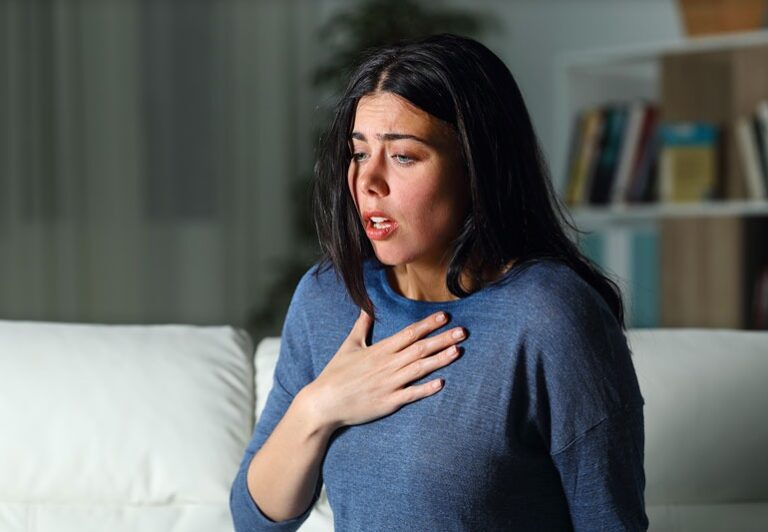Dealing with overwhelming feelings of anxiety is like wearing a heavy coat in summer. Uncomfortable, isn’t it? Anxiety is a debilitating mental state which is characterized by unpleasant emotions, a chronic state of worry about future threats and a sense of being unable to control them. I promise, shedding that weight is easier than you think. From quick fixes to longer-term adjustments, here are 10 life-changing ways to release anxiety today:
- Ground yourself: The 5 4 3 2 1 strategy is very effective when feeling extremely overwhelmed. Look at 5 things around you and notice their presence. Touch and feel 4 things in your proximity. Now, observe 3 sounds that you can hear. Then, try to smell 2 things. And finally, find 1 thing you can taste at the present moment. This is a somatic exercise that instantly shows results.
- Get Moving: Exercise is one of the most efficient ways to reduce anxiety as it releases endorphins in the brain which bring down the level of stress. Even a brisk 10-minute walk calms anxiety significantly. Getting consistent with physical exercise may be beneficial in overcoming severe anxiety fast.
- Limit alcohol and caffeine consumption: Both caffeine and alcohol can serve temporarily to manage restlessness and stress, but in the long run may increase the felt symptoms of anxiety and depression. Instead, try incorporating foods which increase blood sugar levels, stay hydrated and eat healthy.
- Document your feelings: Studies show that regular journaling helps reduce extreme anxiety symptoms. If traditional journaling seems too much, opt for making a simple note or list of your symptoms. Emotions may also be documented by recording your thoughts in audio-visual format. The key is to take control of your paranoid thoughts.
- Worry Time: People who suffer from anxiety often believe that worrying facilitates in overcoming severe anxiety. Therefore, choose a time of the day to think about your concerns as this can help put your mind at ease and stop your thoughts from racing throughout the day.
- Sleep Cycle: One of the major causes of anxiety is the lack of proper rest. The body needs energy to deal with stress and fatigue and cope with severe anxiety. You can improve sleep hygiene by sleeping when tired, avoiding the use of gadgets during bedtime and keeping the room dark and comfortable.
- Spend time with Nature: Removing yourself from your present location when in a state of panic may be an excellent anxiety cure. Spending time outdoors can be a natural treatment for anxiety. Next time you feel a hit of an anxiety attack, go for a short walk in your locality.
- Seek professional support: For people suffering from frequent anxiety attacks, professional help from a psychologist or psychiatrist is recommended. Do not hesitate to reach out for assistance if you think you are going through a tough time. This is a necessary step to get an anxiety diagnosis. The goal of therapy is to help you identify the source of your anxiety, understand your triggers and learn ways to change your response to them. Since anxiety disorders are distinct in their presentation, your therapy is tailored according to the specific set of your symptoms. The therapeutic techniques that have proven to be effective in treating anxiety are:
- Desensitization and Exposure: The crucial feature of the treatment involves systematic, maintained exposure to the object of anxiety so as to reduce the effect it produces.
- Cognitive Behaviour Therapy: In this technique, the therapist will help you identify the thoughts that are relevant to the problem, recognize the relation between these thoughts and maladaptive emotional responses (such as prolonged anxiety), and examine the evidence that supports or contradicts these beliefs.
- Relaxation and Breathing Retraining: Relaxation training usually involves teaching alternately to tense and relax specific muscle groups while breathing slowly and deeply.
- Don’t rule out medication: Depending on the intensity of your symptoms, a psychiatrist may recommend a combination of psychotherapy and anti-anxiety medication as a course of treatment. It is important to remember that while medication cannot cure anxiety, it can help manage the effect of the anxiety-provoking neurotransmitters in the brain. The most commonly used anti-anxiety drugs are benzodiazepines (xanax, antivan, etc.) which facilitate the binding of the inhibitory neurotransmitter GABA that reduces worry levels. When administered in moderation for a limited duration, these drugs produce negligible side effects and are safe to use. However, always consult your doc before starting or discontinuing your meds.
- Practice mindfulness: Mindfulness techniques like meditation, body scans, progressive muscle relaxation and grounding exercises can help shift your attention away from anxious thoughts and back to the present moment.
Dr. Neha is a Delhi-based psychiatrist and mental health professional with extensive experience in the treatment of various mental health disorders. Her expertise and nuanced approach has won her the title of the best psychiatrist in Delhi.
Dr. Neha’s clinic is conveniently located in Rohini, Delhi, and provides a safe and inclusive space for addressing mental health issues. She works closely with women and children, and is often regarded as the best female psychiatrist in Rohini. She follows a collaborative approach and is deeply compassionate about the causes of mental health problems in her patients.
To schedule an appointment with Dr. Neha, reach out to us via our website. Seek holistic and reliable assistance that promises to provide a healthier and happier life.






